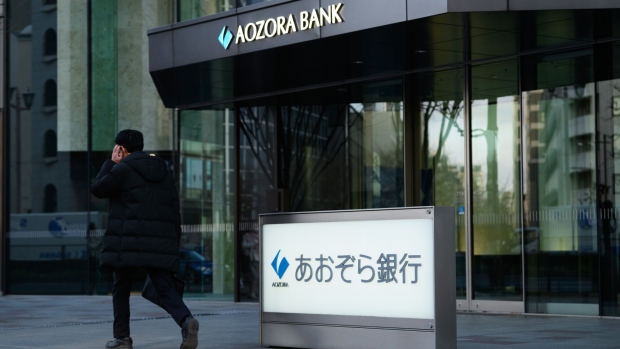Feb 1, 2024
Japan’s Aozora Tumbles 19% to Three-Year Low on US Property Loss
, Bloomberg News

(Bloomberg) -- Japanese lender Aozora Bank Ltd. plunged for a second straight day after saying it would have its first loss in 15 years because of bad loans tied to US property.
The company’s two-day tumble wiped out 33% of its value, equivalent to 128 billion yen ($870 million) in market capitalization.
“The situation in US commercial real estate is terrible,” said Yasuo Sakuma, president of Libra Investments. “Aozora really surprised the market. Once you do something like that, you’re going to have a tough time.”
Aozora loaned aggressively in the US, betting that the market for offices would provide safe and stable returns. When covid hit and people began working from home in large numbers, prices for commercial property cratered, upending the bank’s strategy.
This has made it a target for short sellers. The stock is the second-most shorted on the Nikkei 225 Average.
“It’s almost a failure in risk management that they had this much exposure to a non-core market,” said Pri de Silva, a senior analyst at Bloomberg Intelligence.
Read more: Gamble on US Commercial Property Blows Up for Japan’s Aozora
The bank lacks the scope of Japan’s megabanks and also the geographic strength of the country’s regional banks. That pushed it into a strategy where about one third of its lending was to overseas borrowers.
“Aozora is a unique case and we don’t have any concerns about other banks’ exposure,” said Toshinori Yashiki, the deputy director-general at Japan’s Financial Services Agency. “Japanese banks’ exposure to US commercial real estate is in general well within their risk-control capacity.”
Because of its relatively small size, the bank has also pursued Internet deposits. Retail deposits account for about 64% of the bank’s core funding and of that more than 70% comes via the Internet.
Japan provides deposit insurance that protects up to 10 million yen plus interest for individuals. Accounts for payments and settlements - typically used by businesses - are fully covered.
The average retail account at Aozora had about 4.8 million yen, as of March last year according to the bank and about 80% of its retail deposits were covered by insurance.
The potential for a bank run in Japan compared to the US is limited because of this system, according to Hironari Nozaki, a professor at Toyo University who previously worked as banking analyst.
“There is a big difference in the safety net,” he said.
--With assistance from Lisa Du, Taro Fuse, Kurt Schussler, Nao Sano and Takashi Umekawa.
(Adds comment from Japan’s FSA in 8th paragraph)
©2024 Bloomberg L.P.






